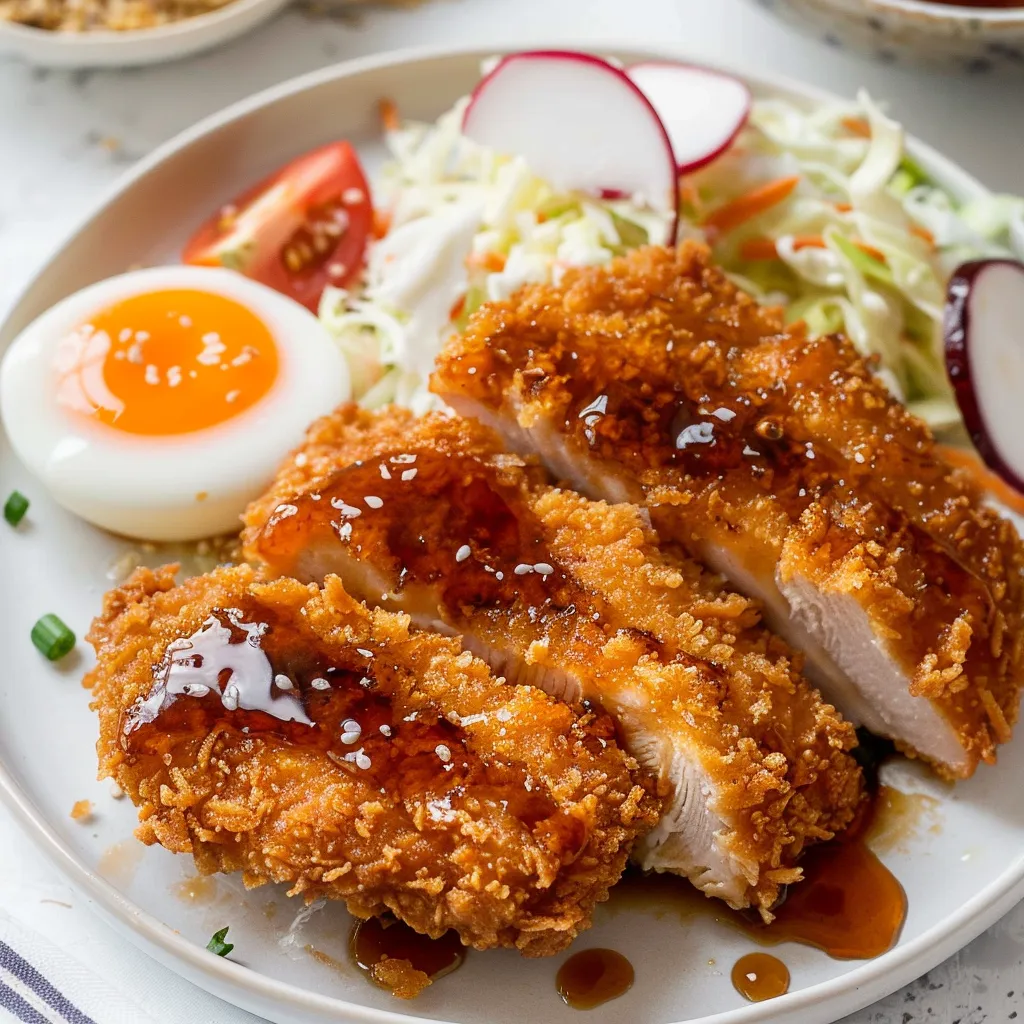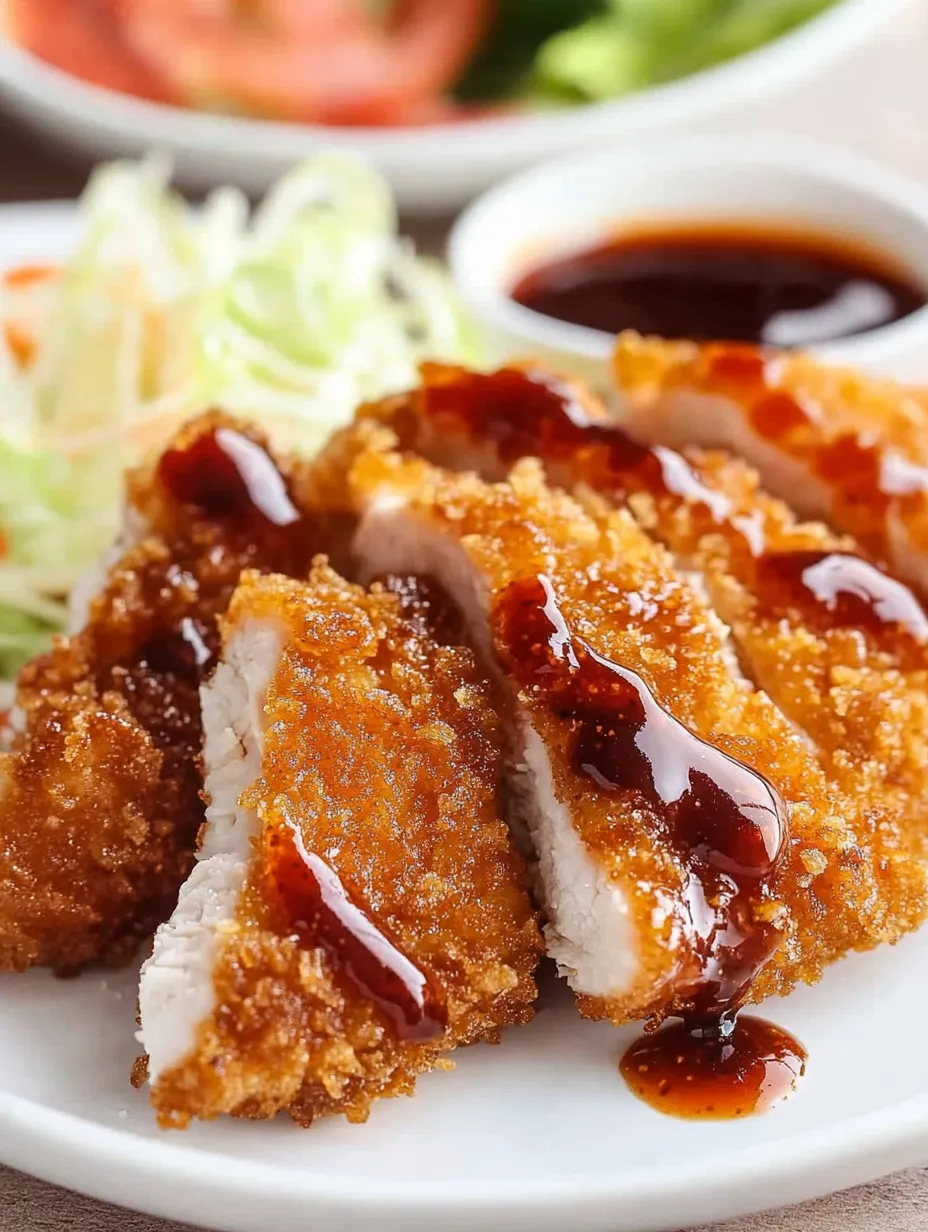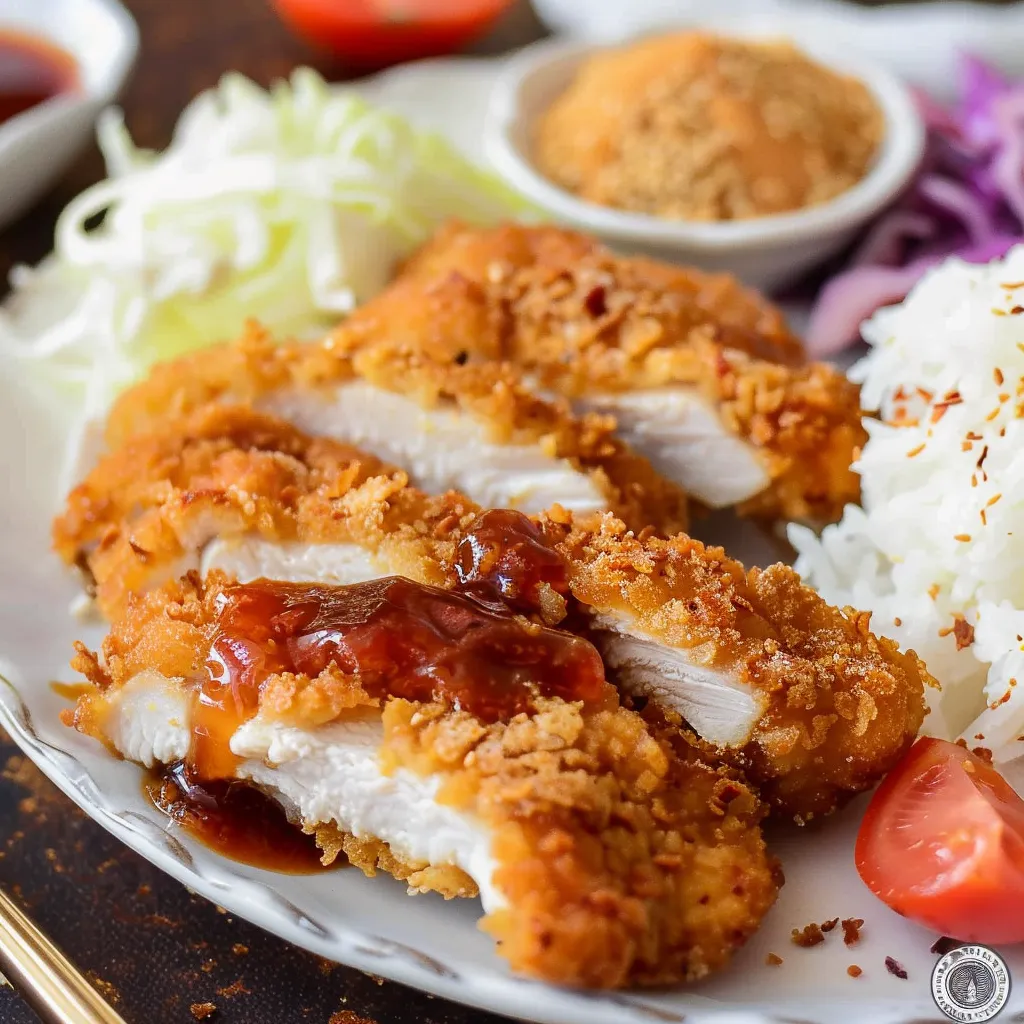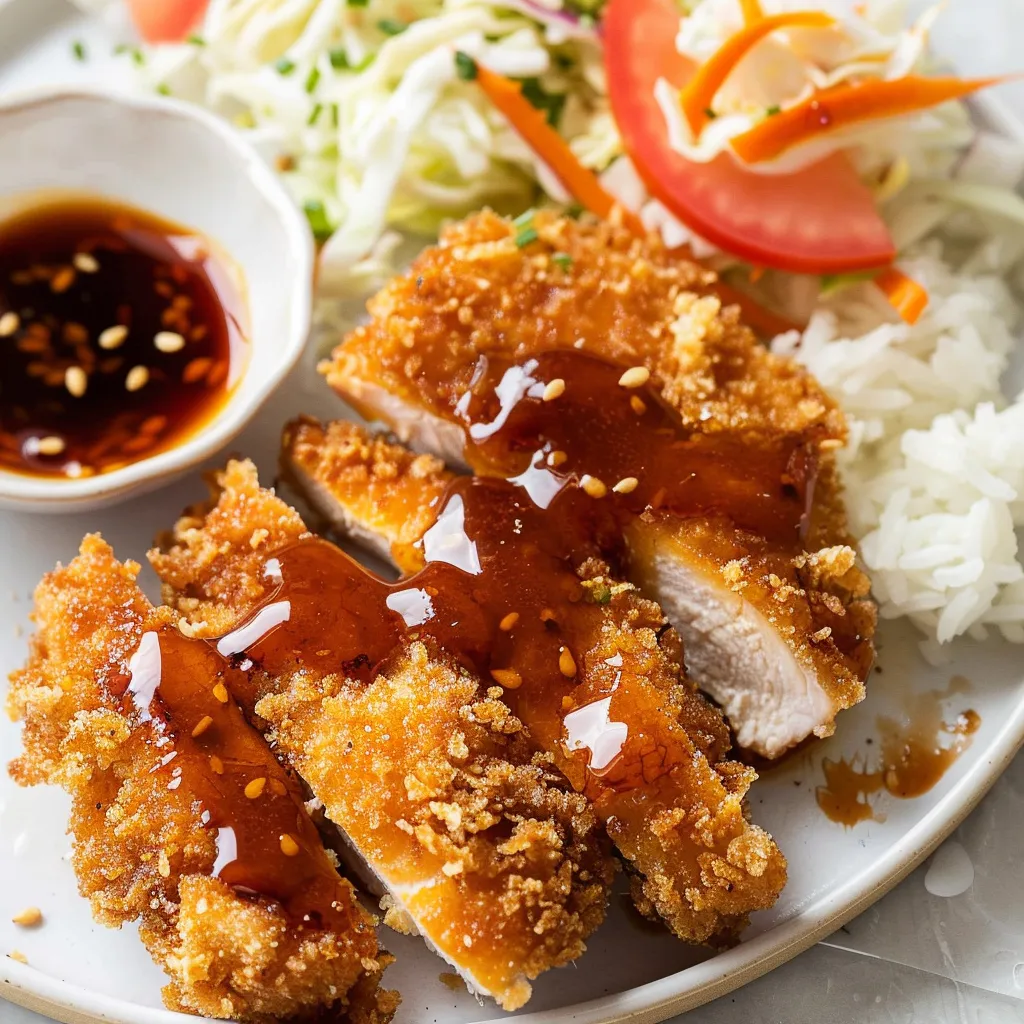 Pin it
Pin it
Nothing beats the comfort of golden, crunchy chicken katsu. This Japanese favorite turns plain chicken breasts into something special with its crispy panko shell and juicy middle. That amazing crunch in every bite has made this a regular hit at my family table.
I've cooked chicken katsu so many times now it's my fail-safe choice when friends come over. My kids' eyes always light up on katsu nights, and even my super-picky nephew always wants more.
Key Ingredients
- Boneless chicken breasts: Try to get pieces that are about the same thickness so they cook evenly. I think organic chicken tastes better and has nicer texture
- Japanese panko breadcrumbs: These give you that special airy crunch you want. Regular breadcrumbs just won't work the same way
- Neutral vegetable oil: You need something with a high smoke point to get that nice golden outside without any burnt flavor
 Pin it
Pin it
Simple Cooking Instructions
- Step 1: Get Your Chicken Ready
- - Put chicken between plastic wrap without trapping air bubbles
- Pound it to make it all the same thickness without tearing the meat
- Add lots of seasoning while chicken sits at room temperature - Step 2: Set Up Your Coating
- - Arrange your stations in this order: flour, whisked eggs, panko
- Use separate hands for wet and dry stuff to avoid messy clumps
- Push the panko onto chicken firmly but carefully for the best coverage - Step 3: Master the Frying
- - Get oil to just the right heat (350°F) for that perfect golden color
- Watch for a soft sizzle when chicken touches the oil
- Keep the temperature steady while cooking for nice even browning
 Pin it
Pin it
We found out that eating katsu fresh from the pan while standing around the kitchen makes the best memories. Everyone gets excited waiting for that first crunchy bite.
Mastering Oil Heat
Getting the oil temperature just right makes all the difference for perfect katsu. If it's too hot, the outside burns before the chicken cooks inside. Too cold, and your coating soaks up too much oil. I've learned to watch the bubbles around the meat - they should be steady but not wild. That gentle sizzle sound tells me it's just right.
Tasty Dipping Options
The classic tonkatsu sauce works great, but trying different dips can create whole new experiences. My homemade curry sauce has become what my family asks for most, making a simple katsu into something extra special. Even just a bit of fresh lemon juice works wonders to cut through the richness.
Personal Touches
After cooking katsu for years, I've found little changes can make it your own. Try mixing some garlic powder into your flour or adding sesame seeds to your panko for subtle flavor twists. Some nights I slice it up for sandwiches with shredded cabbage and sauce between bread.
Family-Style Serving
At our house, we always serve katsu with a big pile of thinly sliced cabbage, hot rice, and a bowl of miso soup. The fresh cabbage balances out the crunchy chicken, and the rice soaks up any sauce you add. It's become our way to end each week together on Sundays.
Keeping Leftovers Crunchy
Katsu tastes best right after cooking, but you can still save it properly. I've found that putting leftover pieces on a wire rack in the fridge helps keep some crunch. A quick warm-up in a hot oven brings back a lot of that original texture.
 Pin it
Pin it
Perfect Breading Secrets
Getting the coating just right comes down to how you handle the wet and dry ingredients. Through lots of trial and error, I found that a light coating of flour followed by just enough egg creates the perfect base. Then gently press the panko all over, letting each crumb create its own tiny crispy pocket during frying. It took me forever to get this right, but now I smile every time I see that golden crust forming.
Planning Ahead
Katsu has become a key part of how I plan meals each week. I often get extra chicken ready on Sundays, pounding it flat and freezing it before adding any coating. This way I can quickly make fresh katsu mid-week when time's tight. The prepped chicken keeps well frozen for up to three months, making last-minute katsu nights super easy.
History Behind The Dish
Whenever I cook katsu, I think about its interesting background. This dish shows how Japanese precision meets Western cooking ideas. My neighbor from Japan told me her grandma would make katsu for special family events, carefully choosing side dishes that went perfectly with both the crunch and flavor. Learning these things has made me appreciate this seemingly basic dish much more.
Creating A Full Dinner
Chicken katsu works even better as part of a complete meal. I like to serve it with quick-pickled cucumbers that add a fresh crunch and clean your palate between bites. A small bowl of miso soup helps balance the richness, while some steamed edamame makes a protein-packed starter that keeps hunger at bay while the katsu cooks.
Tools That Help
Having the right kitchen gear really helps when making katsu. A good heavy pan gives even heat, while a solid meat pounder helps get that important uniform thickness. I keep special long cooking chopsticks just for frying katsu - they let me turn the chicken carefully without damaging the coating like tongs might.
Cooking With Kids
Making katsu has turned into a great teaching opportunity in our home. The easy steps help kids learn kitchen skills, from how to season food to safe frying methods. My daughter now proudly makes her own version, adding her special touch with a sprinkle of furikake on top. These cooking lessons create lasting memories while passing on food traditions.
Adjusting For Special Diets
I've changed this recipe many times for different dietary needs. For friends who can't have gluten, rice flour and gluten-free panko work surprisingly well. When cooking for people watching their oil intake, I've come up with an oven-baked version that's different but still tasty. The trick is keeping what makes katsu special while smartly swapping out certain ingredients.
Closing Thoughts
After making this dish hundreds of times, I still get excited hearing that first sizzle when breaded chicken hits hot oil. In our home, chicken katsu means more than just dinner - it's about skill, tradition, and being together. Whether it's your first try or your hundredth, each batch brings its own special joy.
Frequently Asked Questions
- → Why flatten the chicken?
- Making it evenly thick helps it cook perfectly and stay tender.
- → Can I skip panko?
- Regular breadcrumbs can work, but panko gives the best crunch.
- → How do I check the oil?
- If a breadcrumb sizzles right away without burning, it's ready.
- → Can I oven-bake it?
- Sure, just bake at 400°F for 20-25 minutes—it won't be as crispy as frying, though.
- → What's tonkatsu sauce?
- It's a tangy-sweet Japanese condiment similar to Worcestershire. Find it in Asian stores.
